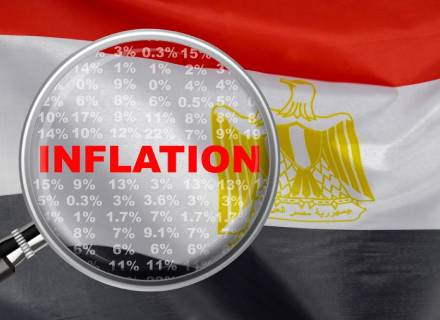Egypt’s inflation would continue in the upcoming months, despite the significant decline observed in March, experts predicted.
The annual urban consumer price inflation rate decreased to 33.3% in March from 35.7% in February, despite the local pound’s depreciation last month, according to data released by the Egyptian government.
The price increase was considerably less than the 36.6% consensus estimate from LSEG.
Experts advise caution because they believe that the systemic factors that are driving up inflation are still in place and that price pressures will continue to exist.
“Egypt’s headline inflation rate slowed to 33.3% y/y in March despite the near 40% fall in the pound’s official exchange rate last month. That said, the effects of the currency fall will continue to feed through over the coming months and keep inflation elevated throughout the rest of 2024,” James Swanston, MENA economist at Capital Economics, said in a note.
In March, the monthly inflation rate was 1%, down from 11.4% in February. Food and beverage prices, which make up the greatest portion of the CPI basket, decreased from 44.9% in February to 50.9% in March.
The possibility of more minimum wage increases and subsidy reductions, according to HSBC Bank economist Simon Williams, indicates that underlying inflationary pressures will continue.
“Additional price controls for the month of Ramadan may have also contributed to lower food inflation in March, which fell from 16.7% m-o-m to just 0.7% m-o-m, and accounted for much of the miss in our forecast,” he said in a note.
Swanston predicts that as a result of the weaker pound and the implemented price increases, such as the 9–22% increase in local fuel prices this month, inflation will continue to be high for the remainder of the year and remain above 25% year over year by year’s end.
On March 6, the Egyptian central bank permitted the pound to depreciate by almost 40% about the US dollar. The devaluation, which was a prerequisite set by the IMF, enabled the troubled nation to access an expanded USD 8 billion financial support programme.
As part of its pledge to the Fund to end subsidies, the government increased fuel prices on March 22 as well.

